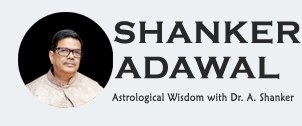An average Indian works with relaxation, talks to his guests friends or visitors during work, often neglecting his work. His work is slow, and in case of a Govt. servant, negative, unless there are extra incentives like offer of extra money, profit of other advantages. He may even read a book visit his friends or a temple or mosque during business hours. He is basically greedy, materially-oriented but outwardly religious-looking. He pretends to show that he is contented but actually he is acquisitive. He talks of high philosophy and sings songs of glory of his ancestors. But leads not too-virtuous life, he is ingenious, manipulative about his own affairs, and engages much of his time in how not to pay what is due to others, evading taxes and earning money by hook or crook to meet his high cost of living.`
Most of the population is poor and their major time goes in making both ends meet somehow.
An average Indian is brainy, intelligent, religious, orthodox, egoist, individualistic, proud, patient, non-violent conservative, peace loving, hospitable, talkative, showy-hypocrite, God-fearing, and a person with lesser ambition.
In social life, an Indian would spend more on marriages and rituals would pay attention to parents and other family members and would live in a joint family which, of course, has started disintegrating. He attends social functions, does charities for his own community. Interferes in or talks about other’s affairs. He goes and listens to preachers, religious-gurus. Holy places, pilgrimages, community functions even without believing in them, he does it as a traditional custom or to show to others.
Some Indians, who are core and soul of Indian society, are really highly spiritually evolved , contented, philosophical, philanthropic, learned, unselfish, virtuous, experts of yoga meditatio0n, herbs, futurology, spiritualism , and capable of showing the path of peace, prosperity and happiness to the whole world.
The future of mankind depends on this small population of Indians, in time to come; the whole world will look forward to them for guidance and leadership. From the events taking place now in the world, it appears that the character of a future a man will further deteriorate, he will not have much work to do, and yet he will be more tense.
His family and social security will totally disappear, he will be a solitary and mostly neglected person, with no outside help or company he will be confused and be wildered. He might have well-equipped scientific aids, but deep inside, he will be hollow, lonely, and unhappy. He will realize the following basic truths of life as recognized in Indian philosophy;
i) Everything is within; it is futile to wander here and there.
ii) Life is like a drama one should perform his part well and accept the results as they come.
iii) There is nobody whom you can call your own except your own self. All relationships are selfish.
iv) You are the cause of your own miseries and you are the cause of your own happiness.
v) One who knows where you are going, the whole world will give him the way.
vi) It is neither the money nor the position of a man which can give him peace; it his how strong character and feeling of contentment which does that.
vii) One should learn to work relaxingly, to eat less than the appetite, to remain contended in whatever he gets and to do good to others. He can then sleep peacefully.
viii) Life, and for that matter every event in it, is temporary. No one’s position is going to remain the same. One should not therefore; worry for any elamities as they like any other thing will also pass.
ix) The world will go as it goes and it will not change for you. If you with to be happy, you should adjust yourself according to the world.
x) Everyone is a separate independent person of his own kind. Even two brothers or sisters are not the same or similar. No one else can make any basic change in one’s life except himself.


